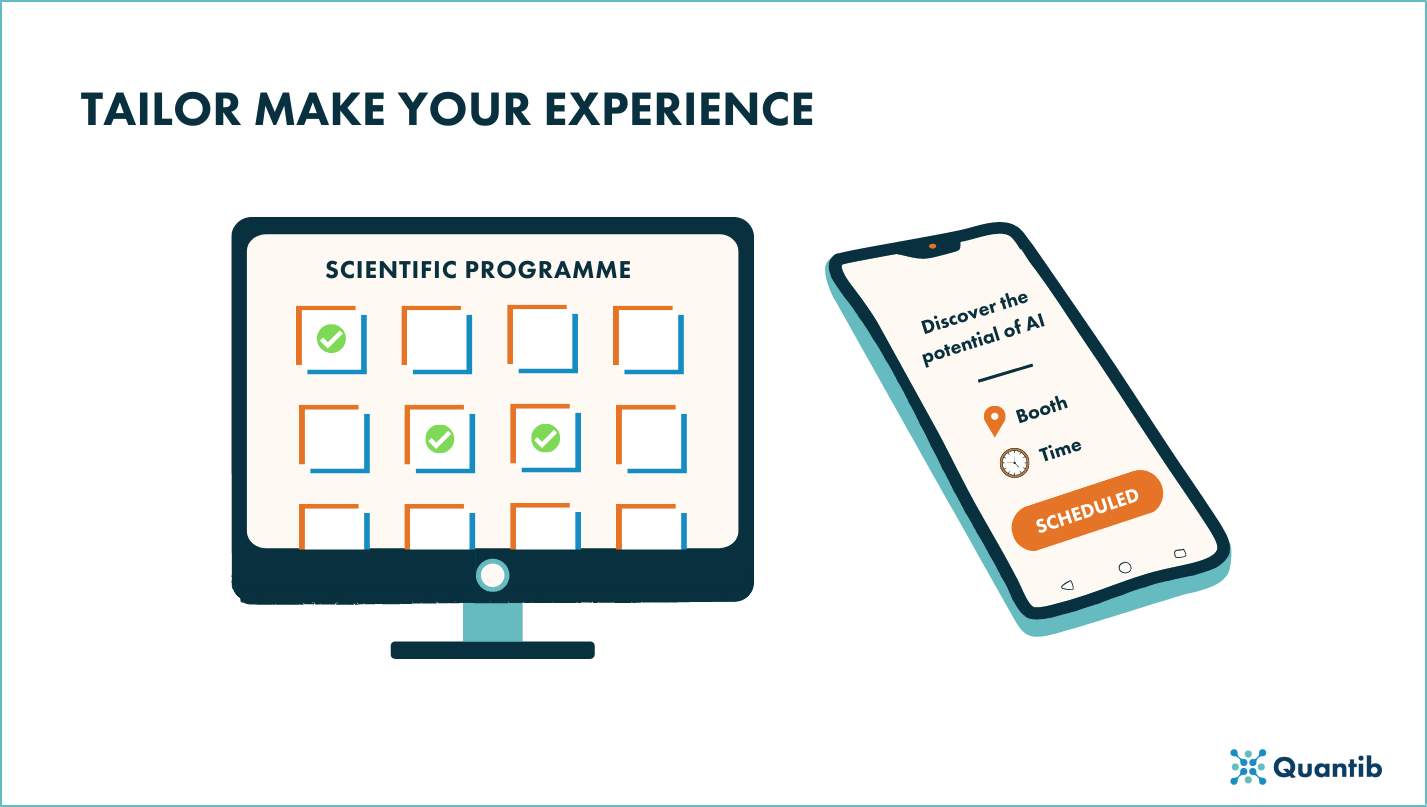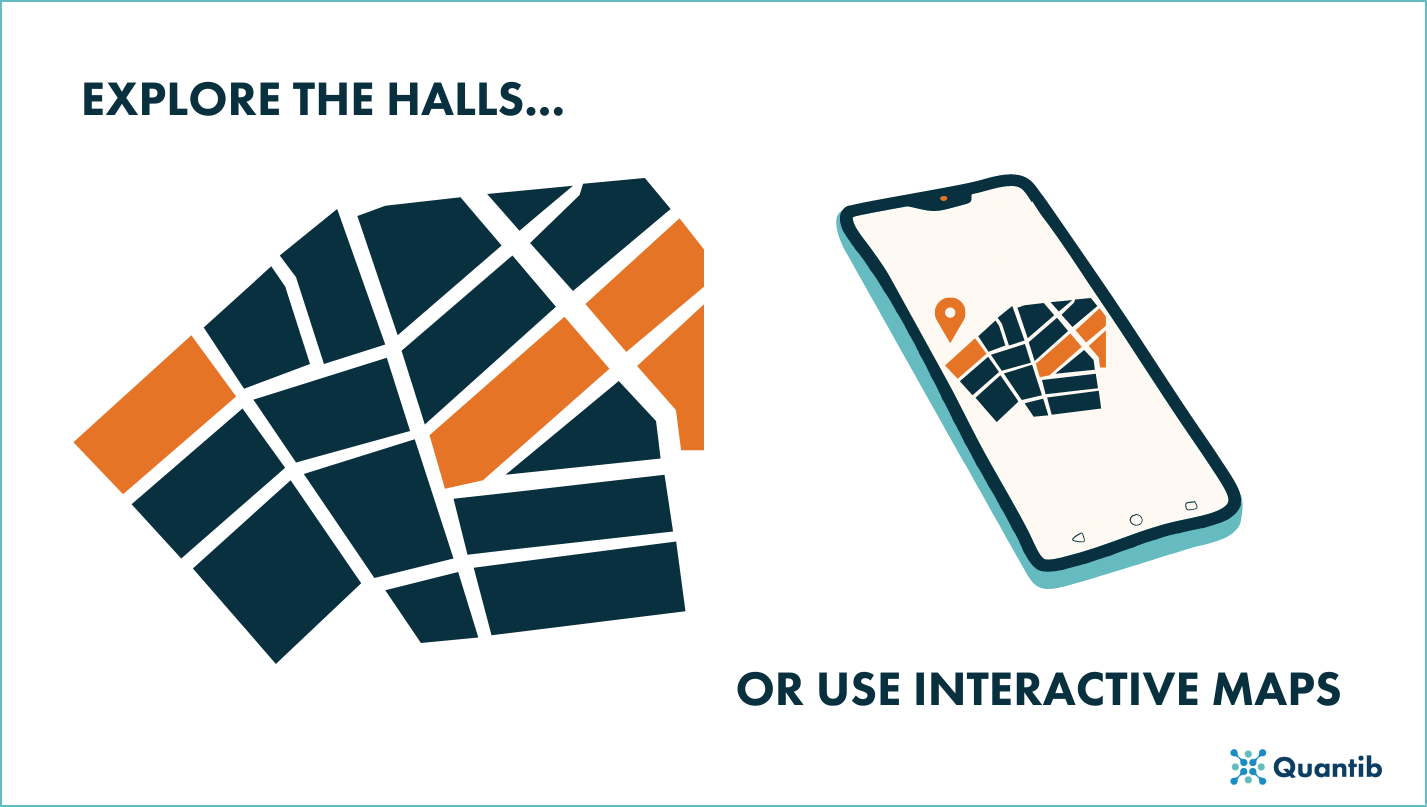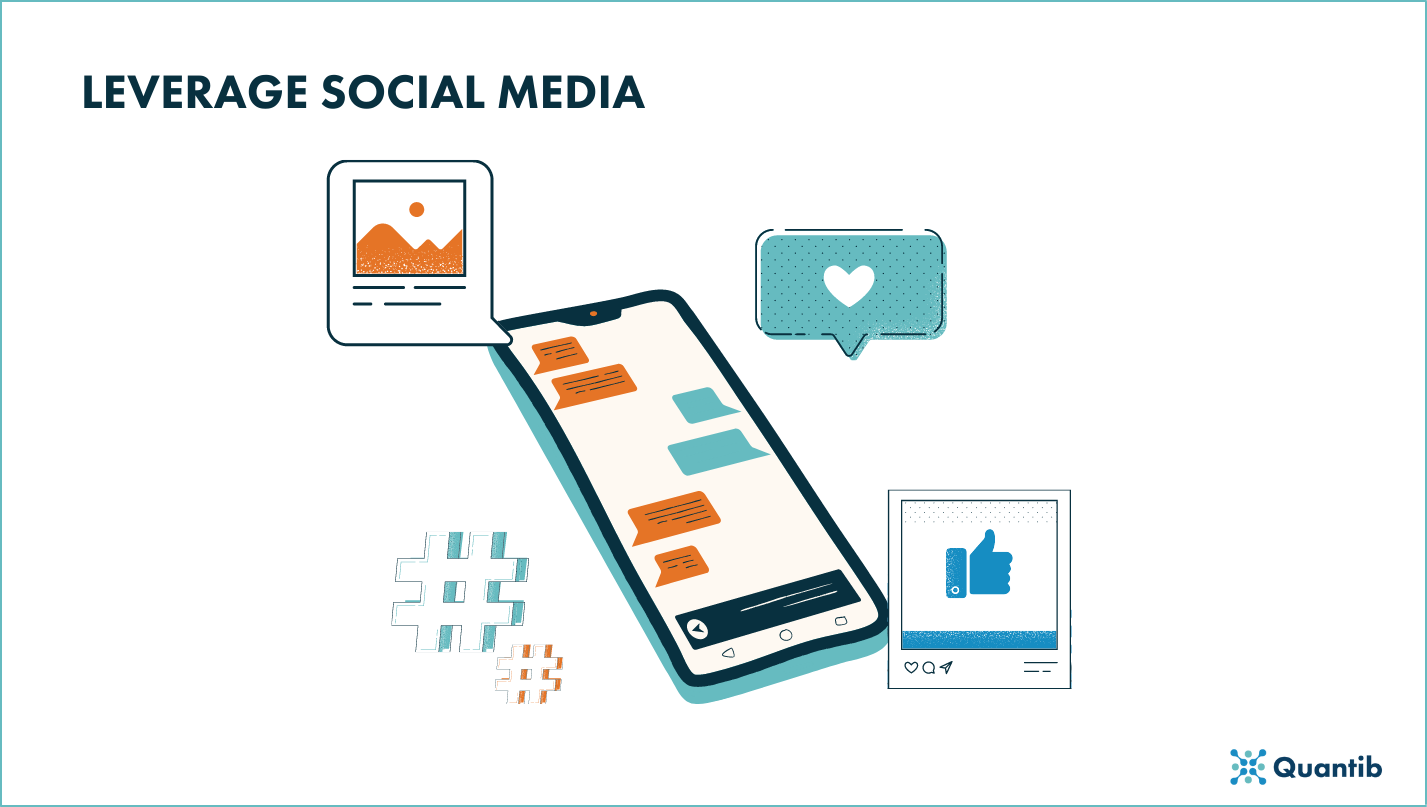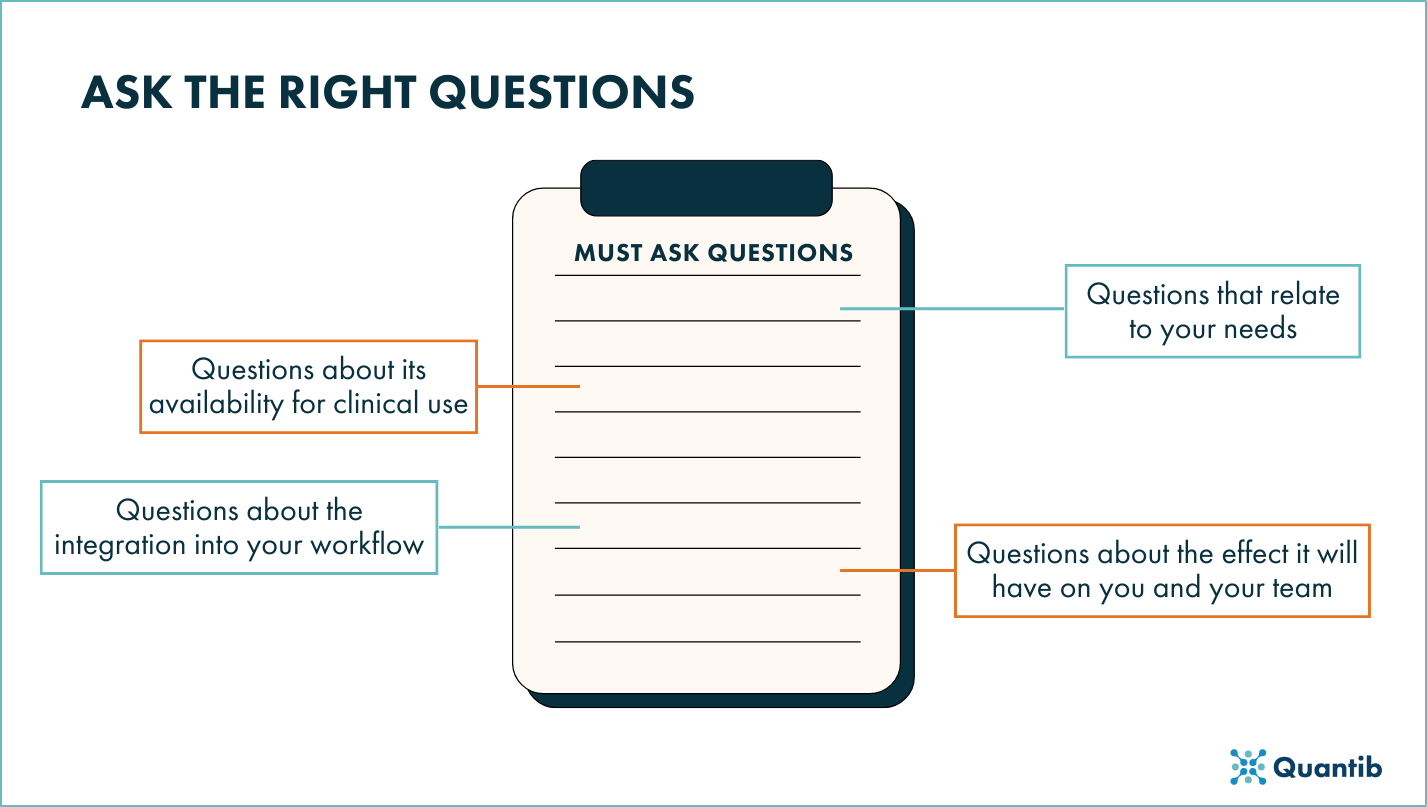The calendar of 2023 healthcare conferences has already started and its first big swing is happening in March with some of the biggest European conferences in the healthcare space, one of them being the biggest European radiology conference: ECR 2023.
However, no matter the specialty of the conference, these events gather thousands of healthcare professionals and specialized vendors to share knowledge, experience and innovation with the common goal of advancing this ever-changing field. For that reason, we are sharing a few of our top 10 tips to follow if you’d like to get the most out of any conference in the medical space.
What to do before the healthcare conference
Conferences are packed with sessions, vendors, and even after hour activities to help you network. However, doing it all can be draining, and let’s be honest, conferences are as much a fun outing as they are meant for education and networking, therefore it is imperative to take time to plan ahead. That way you will be able to enjoy the conference in a way that is tailored to you and your needs. To get there, we suggest you follow these tips:
1. Make a list of the presentations that are a must
The offer of presentations at a conference can be overwhelming. We strongly suggest checking the scientific and industry programmes beforehand to mark your favorite sessions in your calendar. That way you will not miss out on updated guidelines, groundbreaking research and innovative advances.
2. Make a list of the companies you want to visit
Besides the offer of presentations, conferences concentrate the presence of a multitude of exhibitors, of all kinds. Probably more than you can physically visit in the limited amount of time. For that same reason, we recommend preparing a small “hit list” with all the exhibitors that are attending and you absolutely do not want to miss.
3. Pre-schedule your product demos
Conferences and exhibitions are also busy times for the companies’ delegates. To avoid missing out on learning more about the state-of-the-art solutions you wanted to see most, we recommend to pre-schedule your demos when possible. A lot of companies offer you the option to schedule a meeting even weeks in advance, so don’t miss out on the opportunity!

Figure 1: Before going to the conference, tailor make your experience by preparing a list of the presentations you want to attend, the booths you want to visit and pre-schedule demos of the products you are most interested in.
4. Choose your travel companions wisely
When preparing to go to a healthcare or radiology conference it is important to do some reflection and think about what is really the goal you want to achieve while being there.
Are you ready to integrate a specific type of technology, like artificial intelligence (AI), in your practice and are you looking to compare the solutions that exist out there? Then we suggest you ask the AI champion in your hospital to join you, as that person will be able to ask the right questions and provide you with the right insights. Or, if this proves to be a big stretch, ask him/her to provide you with a list of crucial questions that need to be answered before continuing in more detailed conversations with a specific vendor.
What to do during the healthcare conference
Preparation before the conferences is key to tailor-make your experience. However, things get real once you actually get to the conference hall. So, to optimize your visit as much as possible, we suggest you follow these tips:
5. Don’t forget to explore!
Planning is great to make sure you can tailor the conference to you and your needs. However, leave yourself some time to be surprised. The conference halls will hold a lot of unexpected things, like new innovative vendors hidden in the smaller back alleys of the exhibitor section or specific activities prepared by the conference organizers. So we definitely suggest to wander around as well.
Bonus tip: use the interactive maps
To help you with your wander, we recommend using the interactive maps the organizers put together and that allow you to search exhibitors by product category, name or keyword. You can even download them for your convenience.

Figure 2: Take some time to explore the conference hall to find hidden gems or let yourself be guided by the interactive maps that the organizers provide.
6. Network, network, network
Talking to people can be just as valuable as gathering insights from inspiring talks. So be open to talking to new individuals in the coffee line, during lunch or in the corridors. Learn more about their work and research and you may collect smart tips, tricks and inspiration.
Some of the products and research you come across may not be interesting to you or feasible to put into practice on the short term, but it may solve a problem in the future.
You never know when you might need a contact, so try and diversify your network as much as possible and do not hesitate to ask for peoples’ contact details.
Bonus tip: go to vendor endorsed activities
You can also take networking to the next level. A lot of vendors endorse activities, like dinners or parties. These are a perfect opportunity to discover further opinions and have interesting conversations with people that you might not have approach in the conference venue. Good insights can really come from anyone, and the relaxed environments surrounding these events will maximize your chances of getting them. And frankly, bringing a friend and scoring some free drinks is never a bad start to a nice evening!
7. Leverage social media
These conferences also make a big media buzz, so you should definitely leverage social media. The organization, the attendees and the vendors will constantly post about activities that are happening or the insights that they have gathered on social media.
Just make sure you are following and using the hashtags created by the organizers, as those will allow you to join the conversations and make sure you don’t miss anything!

Figure 3: Use the different social media platforms to network, see the news about the conference and join interesting conversations.
8. Don’t forget to take notes
When you attend such a conference, whether it is radiology focused or any other specialty, you are bound to listen to a lot of interesting insights (in and out of the auditorium) so always be prepared to take notes.
Bear in mind that taking notes can look different depending on everyone’s personal preference, so no matter what you use, make sure that it is a reliable method that won’t leave you hanging in the middle of a conversation (fully charged phones or other electronics or a paper notebook with enough blank space).
Bonus tip: use the business cards
With all the networking you are bound to receive a million business cards so: use them! Write the interesting insight they gave you, something about the product they endorse or the follow up you would like to do or promised them to do.
9. Ask the right questions for your needs
There are many interesting companies that offer valuable solutions, but not all solutions may be for you. If you are looking for a specific technology during the conference to help you solve one of your challenges, you may want to ask a specific list of questions. This will allow you to compare different solutions, apples for apples, and get to the right buying decision.
Are you looking into AI radiology software? Then these are some of the questions we think are most important to ask AI radiology vendors:
What was your input data training set?
The quality of the algorithm and, with that, of the AI solution itself will strongly depend on the data used to train said algorithm. It may seem obvious - the larger the dataset, the more resilient your algorithm should be. However, in practice, there are other things to take into account, such as, in case of an imaging-focused algorithm, the type of scanners used to obtain the input scans or the ethnic variability in subjects. The more varied the training data is, the better the algorithm will be able to cope with the differences that clinical situations generally provide.
What options do you offer to integrate your software in the clinical practice?
It is very important to make sure the product you choose will fit smoothly into your current workflow and will not require any big changes in order to work properly.
Do you want to learn more about how to implement AI solutions into the clinical practice? Then check out our blog on different AI software integation options?
Is the solution FDA cleared/CE marked?
Likely not a surprising one, but still a very, if not the most, relevant question. Without regulatory approval, you will not be able to make full clinical use of these software products so, before you get too excited about an AI software product, ask this question to make sure you can actually put it to work!
How will this product impact my daily workflow and that of my colleagues?
If the AI software is (also) used by other physicians, make sure you understand how it impacts your workflow. For example, an AI software primarily used by radiologists may produce an improved report that will help urologists get the right insights faster and is more efficient and useful for MDTs and, in turn, for the rest of the physicians involved in the diagnosis process.

Figure 4: Tailor make a list of questions for the vendors that adapt to your challenges and needs.
10. Set follow-up meetings
After asking these questions, you might get the right answers you were looking for. To make sure that you can keep the momentum going, schedule personal demos for your department or other colleagues that might be interested in the technology. Sometimes it is much easier to write something down into the agenda while everything is fresh and you do it face to face.
Did you love what you saw at the conference but you don’t know how to convince your colleagues to look into it? Marketing professionals roam around the conference as well, so don’t be shy and talk to them about the best ways to promote the technology towards referring physicians or patients.
What to do after the healthcare conference
After all the networking work you did during the conference, don’t forget to follow up! Ask whatever questions you were left with, stay in touch with the promising researcher you spoke to and further investigate the technology you discovered.
Conclusion
After years of attending conferences, both as a vendor and as an interested attendee, these are our top 10 tips that will help you maximize your time at the next healthcare conference you go, no matter which one it is!